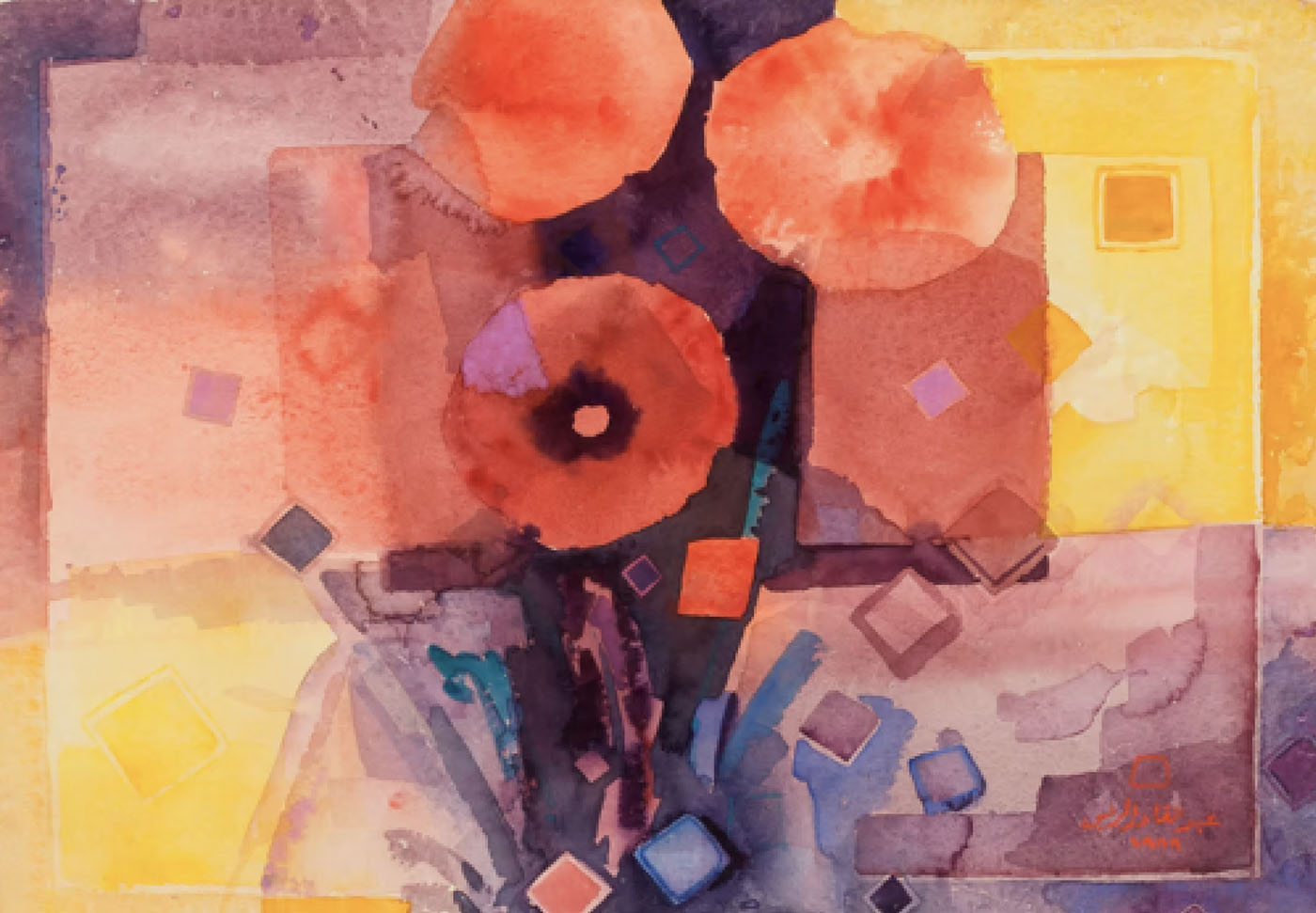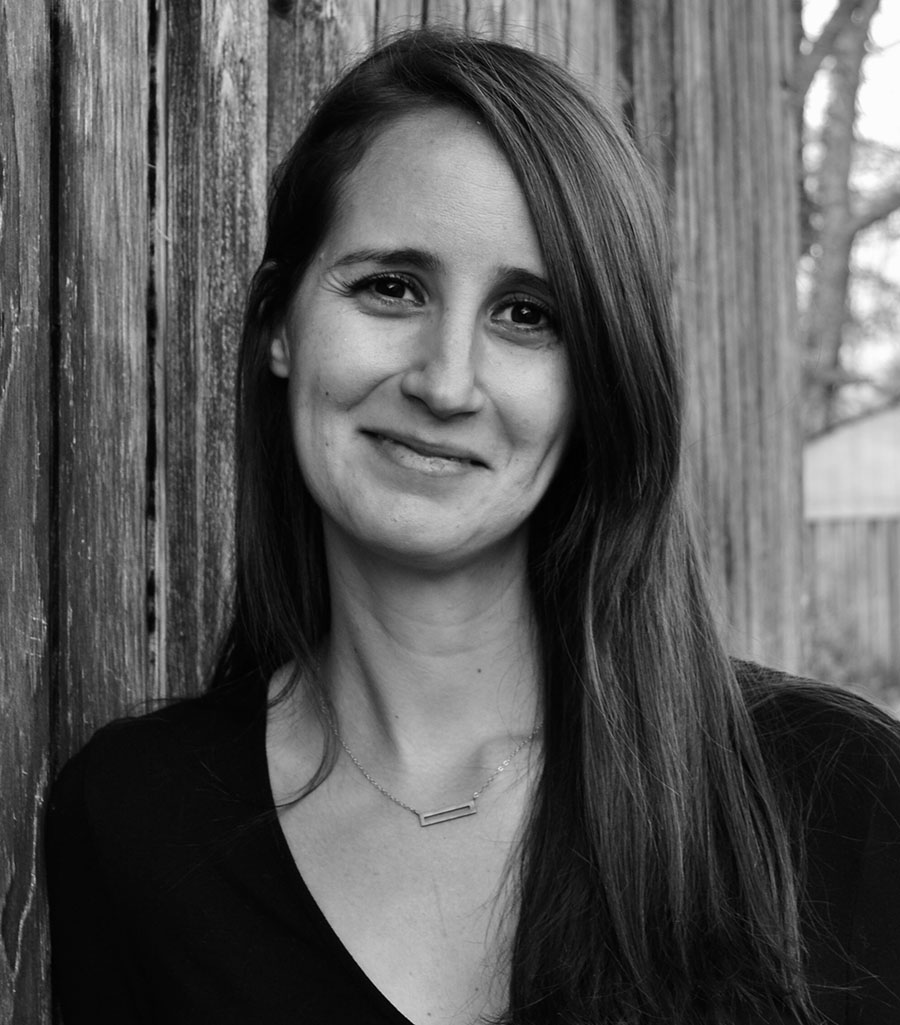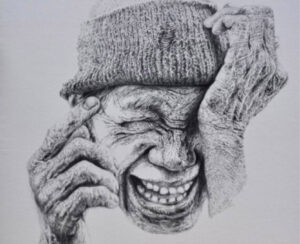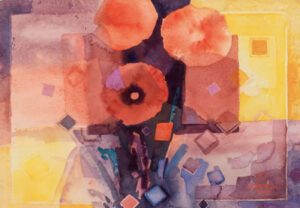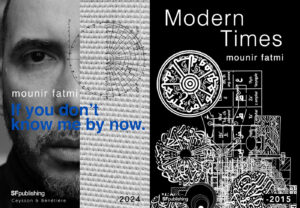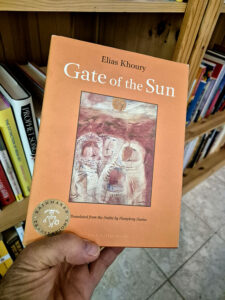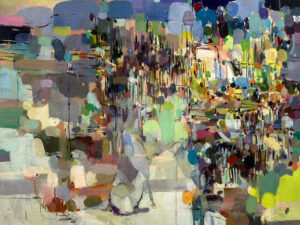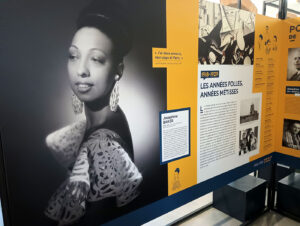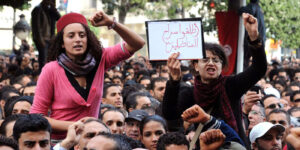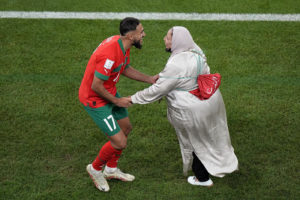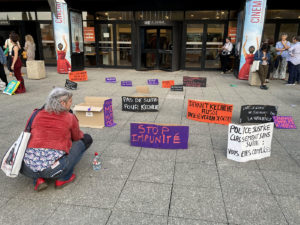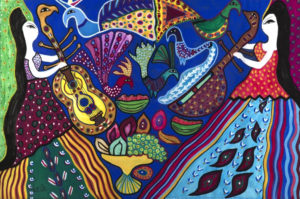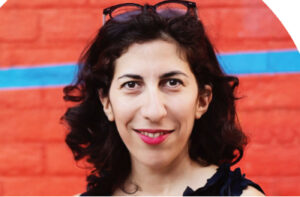For many years, in certain quarters (and certain mouths), “francophone” – when referring to literature written in French – has been a dirty word. For writers of Arab origin in particular, the term has long been fraught, demarcating French writers (legitimacy implied) from Others.
In France, in certain quarters (and certain mouths), “francophone” – when referring to literature written in French – has long been a dirty word. Stripped down, it simply means French-speaking or -writing. On second thought, remove the “simply.” For writers of Arab origin in particular, the term is often fraught, demarcating between French writers (legitimacy implied) and Others. The tension is not purely semantic. The “francophone” label often equals relegation to the “Francophonie” section of French bookstores, well behind the front and center tables and shelves of contemporary “French literature.” In the process, it shapes the marketing and reception of “francophone” books while arguably shoe holing their authors into writing a certain way — namely about identity.
Though the term has been and continues to be fiercely rejected by many writers of Arab origin in France, others embrace it; others still claim to be (or at least act) largely indifferent. In my career as a literary translator, I’ve worked with many Arab authors living in France. Several have told me they loathe the label (any label, really), while one North African writer told me, Et alors? — and so what? — before adding something to the effect that it’s a writer’s job to write, so why bother preoccupying oneself with denominations and categories.
It’s not surprising to find a range of emotions to the term “francophone.” From pragmatism to ambivalence, or resentment, France is a nation still grappling (often clumsily) with a legacy of colonialism that went well beyond land appropriation, i.e., cultural, ideological, economic, and linguistic colonization. The very use of French, as a writing language, has historically been a problematic exercise for many Arab writers, particularly those hailing from France’s former territories in North Africa, who often view or viewed French as inextricably entangled with its colonial associations. The best example is likely the Algerian writer Kateb Yacine (1929-1989), who famously described français as “a spoil of war,” maintaining: “I write in French to tell the French that I am not French.” (Less well known, perhaps, is his mid-life decision to abandon writing in French and dedicate himself to plays written in dialectical Arabic.)
It’s not that time heals all wounds (if anything, the colonial wound is stubbornly raw) but that, like any nation, France goes through phases — politically, culturally, linguistically, often all at the same time. Today, French is no longer the “spoil of war” it once was, or not just, but a tool of expression, a reality and a necessity for Arab authors, many of whom live in France, Algeria, Tunisia, Morocco, or Lebanon.
In the Arab world, notably the Maghreb, writers’ decision to write in French can be contentious in a different way. In a conversation with Elisabeth Daldoul, founder of the Tunisia-based Éditions Elyzad, she told me that the choice is often “more complex in the Maghreb [where] it raises questions of identity and politics.” (In other words, why aren’t you writing in Arabic…?) As for those in France, Daldoul continued, “the francophone label positions them on the margins.”
Fortunately, French publishing is diversifying. The corpus of work by authors of Arab origin has grown considerably from the wave of “beur literature” in the 1980s and 1990s. (Think book covers featuring youths against a backdrop of graffitied walls or in vacant lots). Bookshelves have expanded as well, and many French bookshops boast large international sections, typically categorized by country or language of origin (e.g., Russian / German / Japanese / American literature), as well as, still, a Francophonie section. But while France may appear to have accepted, however grudgingly, the decline of French as the global lingua franca, ceding largely to English, Arabic is still often met with distrust, in conversation and on the page. Case in point: as noted by Algerian novelist Waciny Laredj (1954-), in an essay summarized in Aljadid by editor and professor Elie Chalala, the label applied to Arab writers “intentionally avoids any reference to ‘Arabic.’”
Further complicating the fairytale of a France increasingly inclusive of Arab writers is the fact that while the laureate of last year’s prestigious Prix Goncourt (the French equivalent of the Booker Prize) was Kamel Daoud — the first Algerian recipient in Goncourt history — the author has garnered his fair share of controversy due to (though not only) views that at times hew with a narrative espoused by France’s Far Right.
But while Arab writers in France may still find themselves marginalized, as Daldoul rightly noted, it is not without resistance. Abdellah Taïa (1973-), for example, a renowned gay Moroccan writer long-settled in France, has actively challenged Arab stereotypes in his prose for over two decades. Speaking about his chosen language of expression in an interview with Electra Magazine, he noted: “French was just a means to achieve a goal. For me, French, however sublime it may be, is nothing more than a means to an end.” Fouad Laroui (1958-), another successful Moroccan writer, relies on “radical bilingualism,” to quote scholar Trudy Agar, interweaving Arabic and French in his texts as a strategy of subversion.
Indeed, it’s rare to find a contemporary France-based Arab writer who attributes their use of French purely to its linguistic or esthetic values. Leila Slimani may come the closest. Slimani, who is arguably France’s most successful contemporary Franco-Arab writer, has spoken about the push-pull of being both French and Moroccan, and the shame she feels at not writing in Arabic, while also celebrating the French language and literature.
It’s important to note that Taïa, Laroui, and Slimani are fluent in both French and Arabic (dialectic and/or standard). Which is not necessarily the case for younger Arab writers coming up in their tracks, many of whom were born and raised in France, with varying degrees of exposure to Arabic, or who moved to France at a young age or for higher education. For these early- or mid-career writers, the use of French appears less loaded. (The key word is appears; to assume the motivations in a writer’s mind is most certainly a dangerous endeavor). Still, French is typically considered the default, critical to success and mobility and inclusion. But even though the Arabic language may be increasingly distant, a remnant of a childhood in a Arabophobe country or, farther still, of their parents’ or grandparents’ lives, many of these authors proclaim and celebrate that linguistic heritage, in varying volume, in their writing.
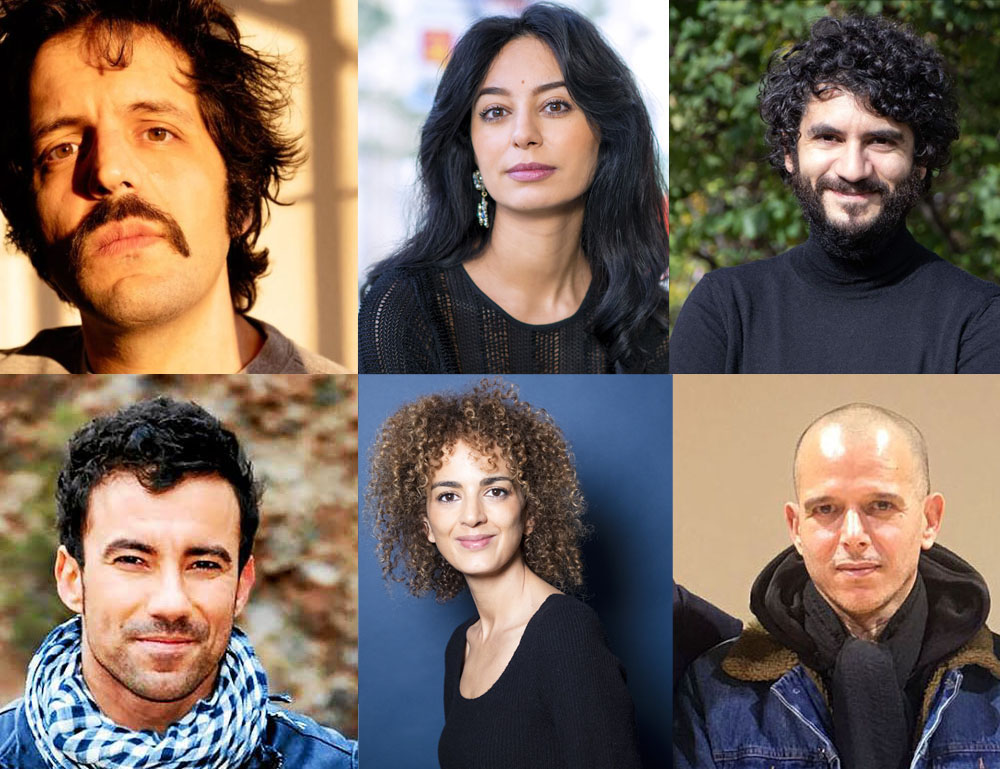
In two recent novels — Comment sortir du monde (Les Nouvelles Éditions du Réveil, 2023, How to Leave This World) by Marouane Bakhti, and La petite dernière (Les Éditions Noir sur Blanc, 2020, The Last One) by Fatima Daas — the narrator’s inability to speak Arabic fluently is a central point. Bakhti (1997-), born in France to a Moroccan father and a French mother, writes: “I garble a few phrases, cheeks red. They continue in Arabic. Everything becomes opaque. I can’t tell if they’re still talking about me.”
Daas (1995-), who was born in France to Algerian parents, depicts similar struggles with her mother tongue (in the literal sense): “Sometimes, when I speak Algerian, people barely understand me or not at all, so they ask my mother, ‘What did she say? What did she mean by that?’ I don’t want my mother to play the intermediary between me and my family.”*
And yet despite, or rather, because of this linguistic limitation, both writers make a point of including Arabic, reflecting the multilingual reality of life in France, however much the Académie Française — stalwart defender of the French tongue — begs to differ. Form matters here. Daas is prone to including glosses, but footnotes and glossaries are strikingly absent from both works. In How to Leave the World, Bakhti often leaves the Arabic as is:
Shukran or smahli for all the stories you told and that will be passed down to me somehow, in French, later.
In these instants, the writer appears to be telling us, the reader, without apology or explanation: I speak this language but also, sometimes, I speak that language.
This linguistic interweaving is also present in writing by Franco-Algerian author Brahim Metiba (1977-), notably Tu reviendras (Elyzad, 2019, You’ll Be Back), a moving autofictional account about a gay man who returns to Algeria after a ten-year absence to bid farewell to his dying father. At times, not only does Metiba use an Arabic word, he writes it in Arabic characters.
Surely, it’s not coincidental that these writers so attentive to language are also queer authors, and as such, are pushing back from multiple margins, and, default or otherwise, have chosen to do so in French.
Other contemporary writers of Arab origin in France, whose novels are less autobiographical, appear to be more preoccupied with style and theme than linguistic tensions (again, key word – appear) while often, but not always, centering Arab protagonists and/or settings. For example, Zineb Mekouar (1991-), a Moroccan writer based in France, penned her first novel, La Poule et son cumin (JC Lattès, 2022, The Hen and its Cumin), about a Moroccan student’s struggle to find her place in France and at home. Her second, Souviens-toi les abeilles (Gallimard, 2024, Remember the Bees), which is set in Inzerki, Morocco, home to the world’s largest collective apiary, explores themes of ecology, maternal love, and resilience. Her prose is plain but engrossing, gracefully transporting the reader:
Before the grandfather, there is sky and earth, that rich-red earth. With the back of his hand, a reflex, he wipes a few drops of sweat off his forehead. The heat began early this year and will linger, today as yesterday, long after sunset. He breathes in and out slowly, as if to match the rhythm of his surroundings. Around him, mountains and shrubs of thyme and thuja, a scattering of argan, carob, and olive trees.
It pains me to write that Amina Damerdji (1987-) is another writer to watch, but if you’ll forgive the cliché, she is… Damerdji, who is Franco-Algerian, set her first novel Laissez-moi vous rejoindre (Gallimard, 2021, Let Me Join You) in Cuba during that country’s revolution, and her second, Bientôt les vivants (Gallimard, 2024, Soon the Living), in Algeria during the Black Decade. Damerdji told me that while French is her maternal language, her written expression is a bit different. “It’s French but a French endlessly intermingled with Arab words, a French that incorporates the musicality and affectivity of Arabic.” The result is characters that speak an invitingly permeable French, “the language of my childhood,” adds Damerdji, “which I’d never read in a novel before.”
Of course (and thankfully!), Arab writing in France isn’t limited to authors of North African origin. Moroccan and Algerian writing is heavily represented, and Tunisian writing less so (two especially interesting Tunisian novelists are Hella Feki (1982-) and Yamen Manai (1980-), both of whom have written about the Arab Spring; Feki, the early, heady days of revolution, and Manai, its stark aftermath). But one also finds French-language works by writers with origins farther afield, for example, in Lebanon, Syria, Egypt, and Palestine, among them Karim Kattan, originally from Bethlehem but who lives and writes primarily in Paris, and Sabyl Ghoussoub, another Parisian whose family emigrated from Lebanon in the ‘80s.
Speaking to the Palestinian experience in particular, Jadd Hilal (1987-), a French-Palestinian-Lebanese novelist, told me, “As a Palestinian, writing has always had a double function for me. On one hand, it’s a tool of memory. Telling the stories of those who can’t do so themselves is a way of ensuring their survival, of passing down their experiences.” His novel Les ailes au loin (Elyzad, 2018, Birds of Passage), does just that by telling one family’s story from 1930, through the Nakba, then exile and war in Lebanon, to present-day. As for his relationship to the French language (spoiler: no ambivalence), Hilal said, “Writing in French doesn’t feel like exile for me. I’ve been using this language since a very young age, and so, there’s no feeling of betrayal for me […] I think I’m more bothered by the way others view me. When people are surprised, for example, that I write so well. Or when I’m proudly given the label of ‘francophone’ writer, which also implies that I’m not a ‘French’ writer or quite simply (which would be best incidentally), a writer.”
Franco-Algerian Author Kaoutar Harchi writes explicitly about this tension, namely because, in addition to being a writer, she is also a sociologist. In 2016, she published a study of five Algerian writers writing in French, whose title borrows a Derrida quote: Je n’ai qu’une langue et ce n’est pas la mienne (Éditions Fayard, I Have Only One Language and It is Not Mine). In the work, she levies strong criticism at a French literary establishment that she accuses of treating Arab writers differently — all while denying said treatment. In an interview with L’Humanité, she qualified the French language as “both a place of oppression and a tool of emancipation.” Harchi herself writes in French, presumably for that very reason. As for the label of “francophone,” she noted, in the same interview, that the label reflects “a racialized representation of literary writing.”
Her observations are still relevant, clearly. But while the categorization of writers in France can feel etched in permanent ink, there are signs of a loosening, from the writing side at least. By which I mean, Arab writers are carving out space, some by simply ignoring the labels given them (for example, the pragmatic writer mentioned in the beginning of this piece, who has published several well-received novels), others by nimbly subverting them.
Take Fatima Daas’ The Last One — a autofictional novel featuring a lesbian Muslim protagonist that incorporates rap lyrics and Quranic surahs? As of today, it has sold over 35,000 copies, been translated into ten languages, and most recently, its film adaptation won a major prize at the Cannes Film Festival. Such success would have been difficult to imagine twenty years ago.
And Damerdji, who had her own strategy, albeit unconsciously, she tells me, of eclipsing categorization. In writing a first novel set so far from her home country (thousands of miles in fact), she found a way to affirm herself not as an Algerian writer, but — and how lovely — simply as a writer of fiction: “I think that it would be incredibly tragic to only be able to write about what you’ve lived through.”
Hilal too, who has emerged as an eloquent and much-needed Palestinian voice in French media, actively resists the labels affixed to him. His second novel Une baignoire dans le désert (Elyzad, 2020, A Bathtub in the Desert), is a fantastical take on the classic bildungsroman; his most recent, Le caprice de vivre (Elyzad, 2023, The Whims of Life), a steamy novel set in Paris, tackles sex, love, and identity politics.
As mentioned, it’s dangerous to attribute intentions or motivations to a single writer, let alone an entire group or generational cohort. Besides, what is especially appealing about these contemporary Arab prose writers is the impressive variety in their style and form. Yes, they are preoccupied with language — actively challenging French or merely taking advantage of it — but also with gender roles and sexuality and animal rights and climate change and the rise of authoritarianism, to mention but a few themes.
And so their literary production is not limited to stories of growing up in the banlieues, of the immigrant’s lonely journey, of longing for a more or less unfamiliar homeland — though there are plenty of those. They also write stories of love (notably, queer love) and loss, of war and peace. Some are comical, others tragic; some are wildly ambitious, some fall flat; some reveal enormous promise, others meet such promise. The point is their multiplicity.
The quote that inspired Kaoutar Harchi’s 2016 book was “I have only one language and it is not mine.” Nearly a decade later, perhaps we could dare to be optimistic. Perhaps we could reformulate the phrase. I have many languages — they are all mine.
* Disclaimer! I translated both these works into English, for publication by, respectively, Divided Publishing and Other Press.
**All translations are the author’s own.



